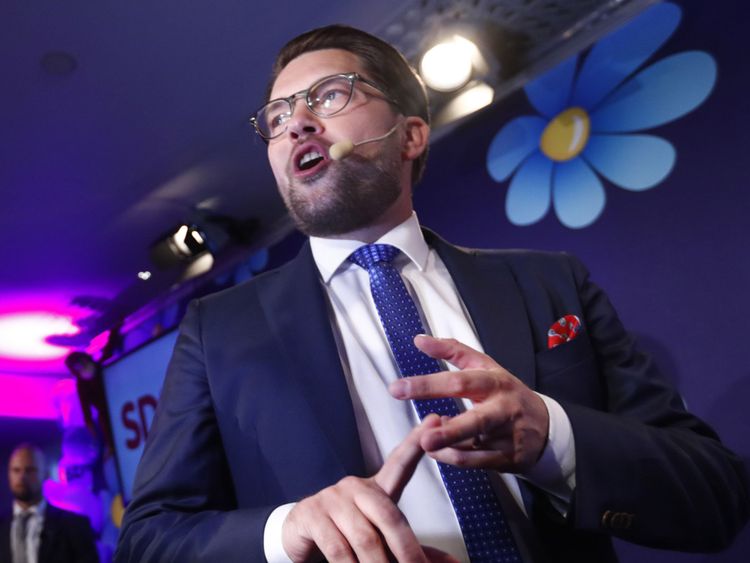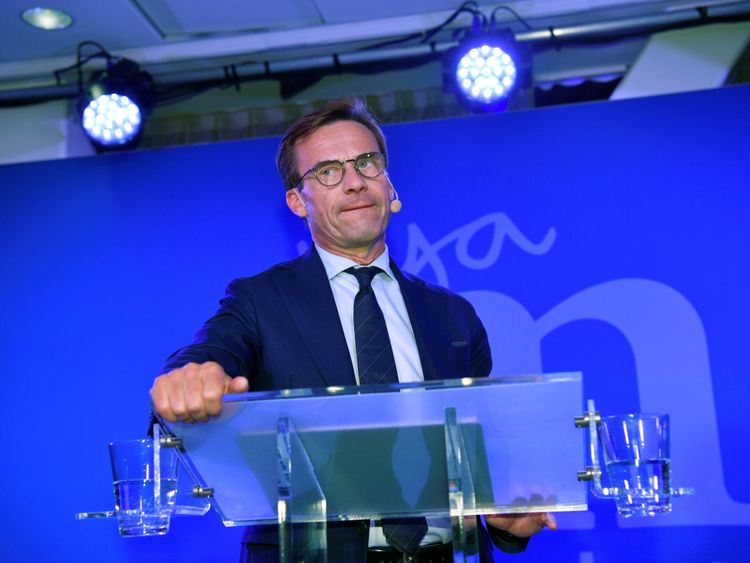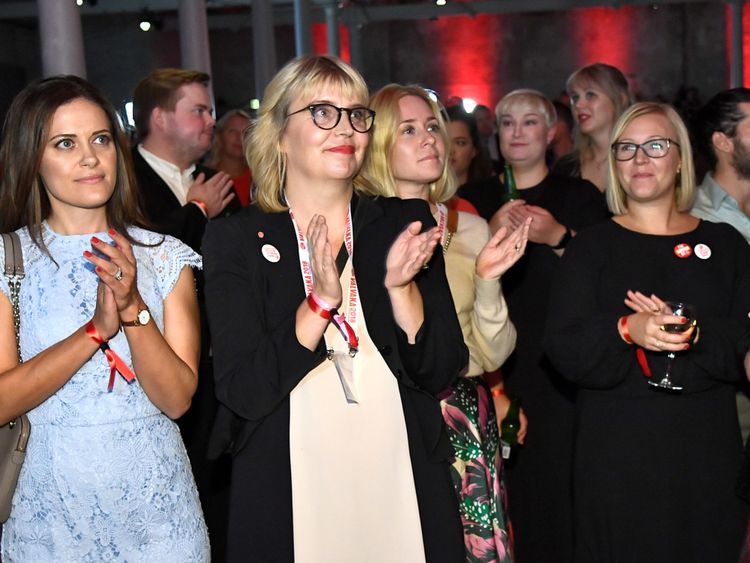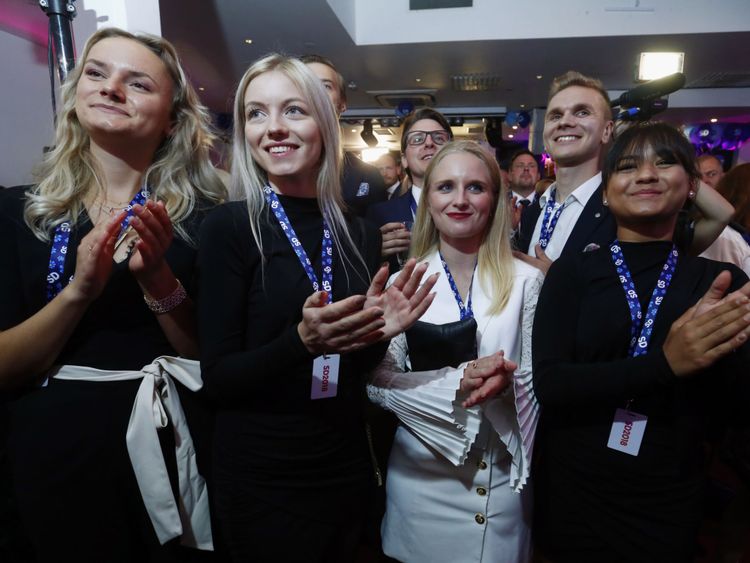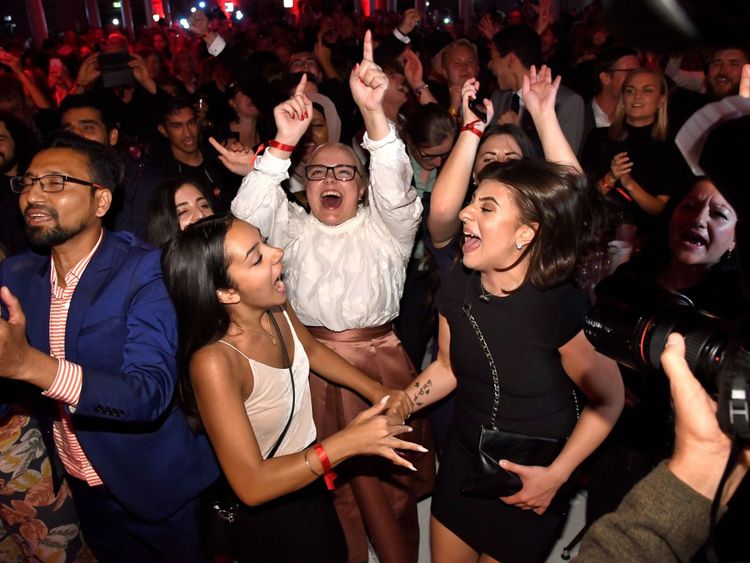The Swedish prime minister has rejected calls to resign and said that “nothing will be determined” on an election night that has seen no clear winner emerge after major gains for an anti-immigration party.
Neither the centre-right bloc or centre-left bloc in Sweden has taken a convincing victory on a positive night for the far-right Sweden Democrats, who are in a powerful position as the third largest party based on early results.
Leader Jimmie Akesson said they were the “real winners” of the election and that the party would now have influence over Swedish politics, with a meeting with centre-right bloc leader Ulf Kristersson due on Monday.
Mr Kristersson, in turn, has called on Prime Minister Stefan Lofven to step down as the country stares down the barrel of a hung parliament.
Responding to the call, Mr Lofven said he would continue to “calmly work” in his role over the next two weeks (when parliament opens), but acknowledged the election “should be the funeral for bloc politics”.
He added: “It is clear that a cross-bloc coalition is needed to govern.”
The prime minister said the mainstream parties now have a “moral responsibility” to form a government, and keep away from power a party he has previously claimed had “roots in Nazism”.
Mr Akesson’s anti-immigration party found themselves with 17.6% of the vote, after 99% of them had been counted, with the Moderates at 19.8%.
Preliminary results had the ruling party receiving 28.4% of the vote, which was estimated to translate into a loss of 13 seats in Sweden’s 175-seat parliament, the Riksdagen.
Sky’s Michelle Clifford, who is reporting from the Sweden Democrats’ election party, said: “They have done well, but the aspirations from the polls was that they would be the second largest, but that doesn’t seem so.
“The leader made the point that they are now a force to be reckoned with. He has done a great deal to sanitise the party, kicking out radical members, he now believes the main parties need to look to them and do work with them.
“They told me they will strike a very hard bargain. It’s much more natural that they would go with the centre-right party. The critical thing this evening is that the centre-right and centre-left blocs are neck and neck.”
The Social Democrats have ruled out cooperating with the Sweden Democrats, but party secretary Richard Jomshof has said they want to be part of government.
Meanwhile, Liberal Party leader Jan Bjorklund has said he wants a centre-right alliance government, and has also ruled out any cooperation with the Sweden Democrats.
Clifford said the ruling Social Democrats could receive their worst results since 1908 and all parties had said they will not be collaborating with the ruling party, meaning any new regime would have to deal with a fragmented parliament.
The run-up to the election has been dominated by concerns over immigration and crime, with huge numbers of people having moved to the country in recent years.
Since 2015, when Sweden had a population of 10 million, the government has allowed 163,000 migrants into the country, meaning it was the highest intake per capita of any European nation.
Many Swedes have begun to worry about an erosion of “humanitarian values”, which has helped the Sweden Democrat party rise in popularity.
Before the vote, Mr Lofven – who came to power in 2014 – said: “This election is a referendum about our welfare.
“It’s also about decency, about a decent democracy… and not letting the Sweden Democrats, an extremist party, a racist party, get any influence in the government.”
World News – Breaking international news and headlines | Sky News

